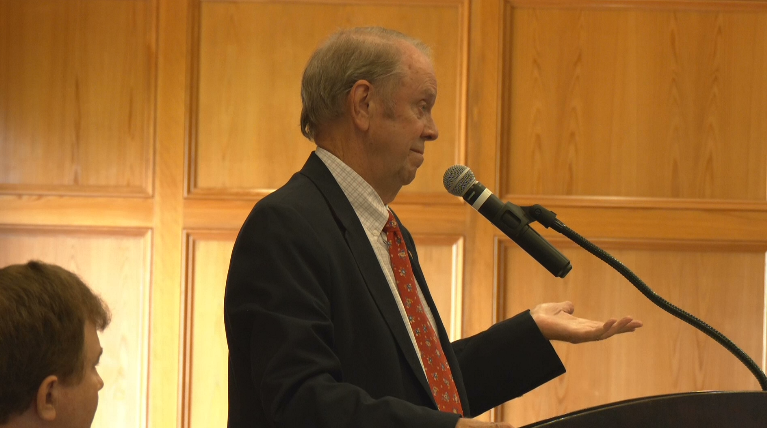Top global risk in 2020? U.S. politics, experts say
As investors assess the threat of increasingly hostile relations between the U.S. and Iran, Eurasia Group says the conflict isn’t the biggest threat facing global economic and political stability this year. Instead, the top risk in 2020 is likely to be America’s politics.
“It’s the first time in history of our firm that a domestic political risk is No. 1,” said Ian Bremmer, president of the political risk consultancy, in a conference call to discuss the geopolitical advisory firm’s annual risk-assessment forecast. The firm started in 1998, he noted.
At the heart of the issue is the November presidential election, with Bremmer predicting that many Americans will view the results as illegitimate no matter the outcome. The Senate is likely to acquit President Donald Trump in his forthcoming impeachment trial, heightening political tensions in an already polarized nation, he added. In a close election this fall, the losing side will claim the results were “rigged,” leading to instability and legal challenges, Bremmer said.
Trending News
“Meaningful [France-style] social discontent becomes more likely in that environment, as does domestic, politically inspired violence,” Eurasia Group wrote in an analysis issued on Monday.
In addition, legislation could stall because of what the firm called a “non-functioning Congress,” adding to mounting problems if the economy slows down, according to the Eurasia report.
China headwinds
The second biggest risk for 2020 is one that has been in the headlines throughout the past year, according to Eurasia: The decision by China to reduce its technological dependence on the U.S. following Mr. Trump’s trade war with the country.
“Caught off-guard by U.S. actions, President Xi Jinping has called for a new ‘Long March’ to break China’s technological dependence on the U.S.,” the report noted. “At the same time, China will expand efforts to reshape international technology, trade and financial architecture to better promote its interests in an increasingly bifurcated world.”
That represents a shift away from decades of globalization, Bremmer said. He added that “very soon” the world’s largest economy may no longer be America’s capitalist system, but China’s hybrid of state control and capitalism.
Iran: Not at the top of the list
The threat of deteriorating U.S.-Iran relations ranks at No. 8, Eurasia Group said. That’s partly because Bremmer said his group doesn’t believe a full-scale military response will evolve from the U.S. killing of General Qassem Soleimani, the head of Iran’s elite Quds military force and one of the most powerful figures in the Islamic Republic.
“Iran is a committed adversary of the United States but also has a clear understanding of U.S. military power … as well as (now) a better sense of Trump’s red lines and deterrence capacity,” the report noted.
Below is Eurasia Group’s list of the top 10 risks for 2020.
- U.S. domestic politics: As noted above, a polarized nation is heading into an election that could be contested by both sides, leading to legislative and economic challenges.
- “The Great Decoupling”: China and the U.S. are cutting their technological ties, leading to disruptions in the globalization of trade and business.
- U.S.-China tensions: As conflict between the U.S. and China festers, economic and security tensions will intensify.
- The waning influence of multinational companies: Regulatory and trade restrictions will lessen big companies’ ability to generate wealth, growth and jobs.
- Pressure on India’s Narendra Modi: Sectarian and religious conflicts are growing in India, which is facing a precarious fiscal situation.
- The European Union pulls away: The EU is growing more independent, which creates regulatory and economic risks for other countries.
- The politics versus economics of climate change: Political solutions to climate change aren’t working, which increases the risks of economic disruptions and political instability.
- Tensions with Iran and the Middle East: “U.S. policy toward the major Shia-led nations in the Middle East is failing,” increasing the risks of regional instability and higher gas prices, Eurasia Group said.
- Latin America’s instability: Citizens in Latin American countries are angry about issues ranging from corruption to low-quality public services. That and other pressures are increasing risks across the region.
- Turkey: “President Recep Tayyip Erdogan has entered a period of steep political decline … This year, his weakness will lead him to lash out. The response will further damage Turkey’s already ailing economy,” the group predicted.





Leave a Reply